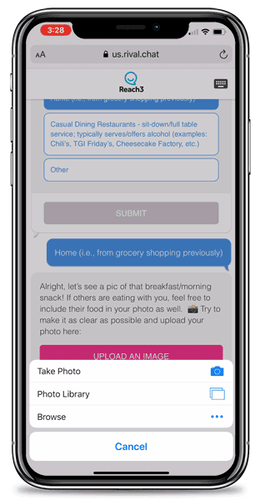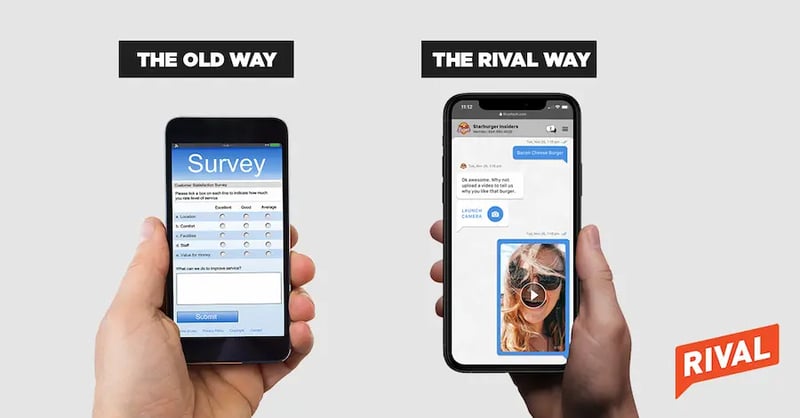
In the product world, we live and die by the phrase “nothing interesting happens in the office,” meaning that you can’t make decisions just sitting at your desk. Making breakthrough products requires validating your decisions with your consumers every step of the way. If you don’t, your competitors will, and you’ll be left behind.
This philosophy of validating with your customers doesn’t only apply to product management—today, for brands to succeed, every part of the organization needs to bring the voice of the customer and accurate data into strategic and tactical decisions. I recognize that almost every brand today believes they have enough data. But if we look under the hood, we’d see that the quality of that data is at worst, poor and at best, incomplete.
 In fact, according to a Deloitte study, poor data reliability is one of the main issues executive teams list when describing the challenges they face when trying to make informed decisions. Deloitte claims that “perils rang[e] from minor embarrassments to complete customer alienation” for businesses who don’t have access to accurate data. In order to rely on your data, you need the right collection mechanism, the right audience and the right experience. If any one of these pieces fail, the data can’t be trusted.
In fact, according to a Deloitte study, poor data reliability is one of the main issues executive teams list when describing the challenges they face when trying to make informed decisions. Deloitte claims that “perils rang[e] from minor embarrassments to complete customer alienation” for businesses who don’t have access to accurate data. In order to rely on your data, you need the right collection mechanism, the right audience and the right experience. If any one of these pieces fail, the data can’t be trusted.
At Rival, we believe that data collection is table stakes when it comes to conducting robust and sophisticated market research. That’s why we’ve invested heavily in the data collection engine of our market research platform. That said, many of us at Rival have decades of history in insights (myself included), and we know firsthand that capturing accurate data is not just a tech problem.
There is no foolproof way to elicit accurate data, but there are some critical steps you must take—no compromises. Below, I’ve outlined several key considerations to increase your chances of collecting accurate, reliable data for making key decisions.
To increase the relevancy of your data, your collection methods need to be relevant. If your consumers are not using email, why are you asking them to provide feedback that way? You need to go where your consumers are.
At Rival, this comes up in conversations a lot because we understand the importance of meeting your consumers where they’re at (instead of making them come to you) on the devices and media channels they already use. When it comes to gathering insightful data, it is the only way to cut through the noise and make it easy for them to participate. That’s why our market research technology is mobile-focused. Our approach enables companies to go beyond traditional recruitment sources and engage a more diverse and inclusive group of customers via text notifications, social media, influencers and other mobile-first channels.
"Rival provided unprecedented access to our core customers. Their technology is a marketer’s dream." Nancy Richardson, CMO - The House of LR&C
It’s time to face the facts: generic, traditional surveys do a disservice to your brand. The survey experience is an extension of your brand perception in the market. If you’re asking your customers what they think of your brand using outdated technology, it's directly influencing how they think about your brand in that moment and moving forward. Oftentimes, the survey experience is siloed from other brand touch points and experiences, and as a result, brands miss micro-moments in which they could build loyalty and drive engagement. In a worst-case scenario, this consumer experience reinforces a negative brand impression, creating disconnect and frustration that’s hard to recover from.
At the end of the day, your customer insights and customer experience (CX) program needs to be on brand. The needle comes off the record when the brand experience is outdated and stale.
It’s imperative you create a feeling of brand authenticity in the exchange of opinions and ideas. This is increasingly important and especially non-negotiable with younger audiences. Cultural intelligence is an emerging focus for brands, where businesses must demonstrate that they not only understand, but also reflect the audience they are serving. With sentiments changing almost daily, brands need to monitor the consumer landscape closely and react with skill and judgment. If brands fail to build cultural intelligence and speak authentically to consumers, they run the risk of failing to keep customers loyal, attract new ones and develop sticky products. By having real conversations with your customers– instead of quizzing them with test-style surveys– you encourage them to open up to share candid, relevant feedback.

Lastly, while its critical that you connect with the right people to elicit honest, open feedback, its equally important that this process empowers the organization to act quickly. Traditional market research is failing to keep up with changing habits (mobile phones, social media, etc.). They are struggling to keep pace, oftentimes because they are failing to get access to timely information from their customer base. To be successful, brands need to target the right audience in an authentic and timely way. This is where Rival comes in. Rival Technologies helps close the gap between what brands think and what consumers feel by delivering representative insights from real people with speed and ease.
Our unique approach to data collection through immersive, authentic feedback has helped provide brands with a new dimension of information. Here are a few examples:
.png?width=250&name=qr-code%20(2).png) If you'd like to try a chat yourself to get a feel for how you can run sophisticated research using our platform, please scan the QR code here—it will open up a demo chat for you to try.
If you'd like to try a chat yourself to get a feel for how you can run sophisticated research using our platform, please scan the QR code here—it will open up a demo chat for you to try.
And if you’d like to learn more about our tech and approach to data collection, please don’t hesitate to reach out. We’re always happy to chat with marketing and insight professionals.
Subscribe to our blog to receive the latest news, trends and best practices from market research experts.

No Comments Yet
Let us know what you think